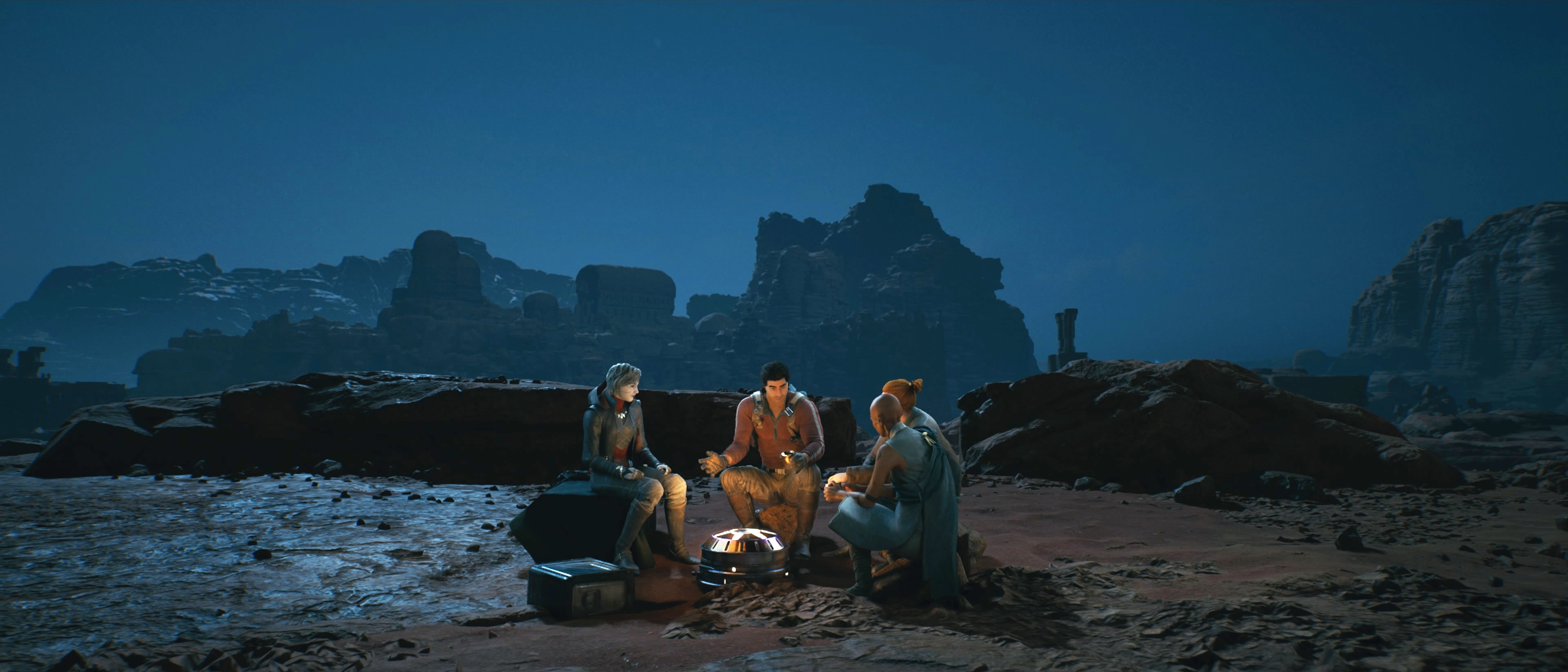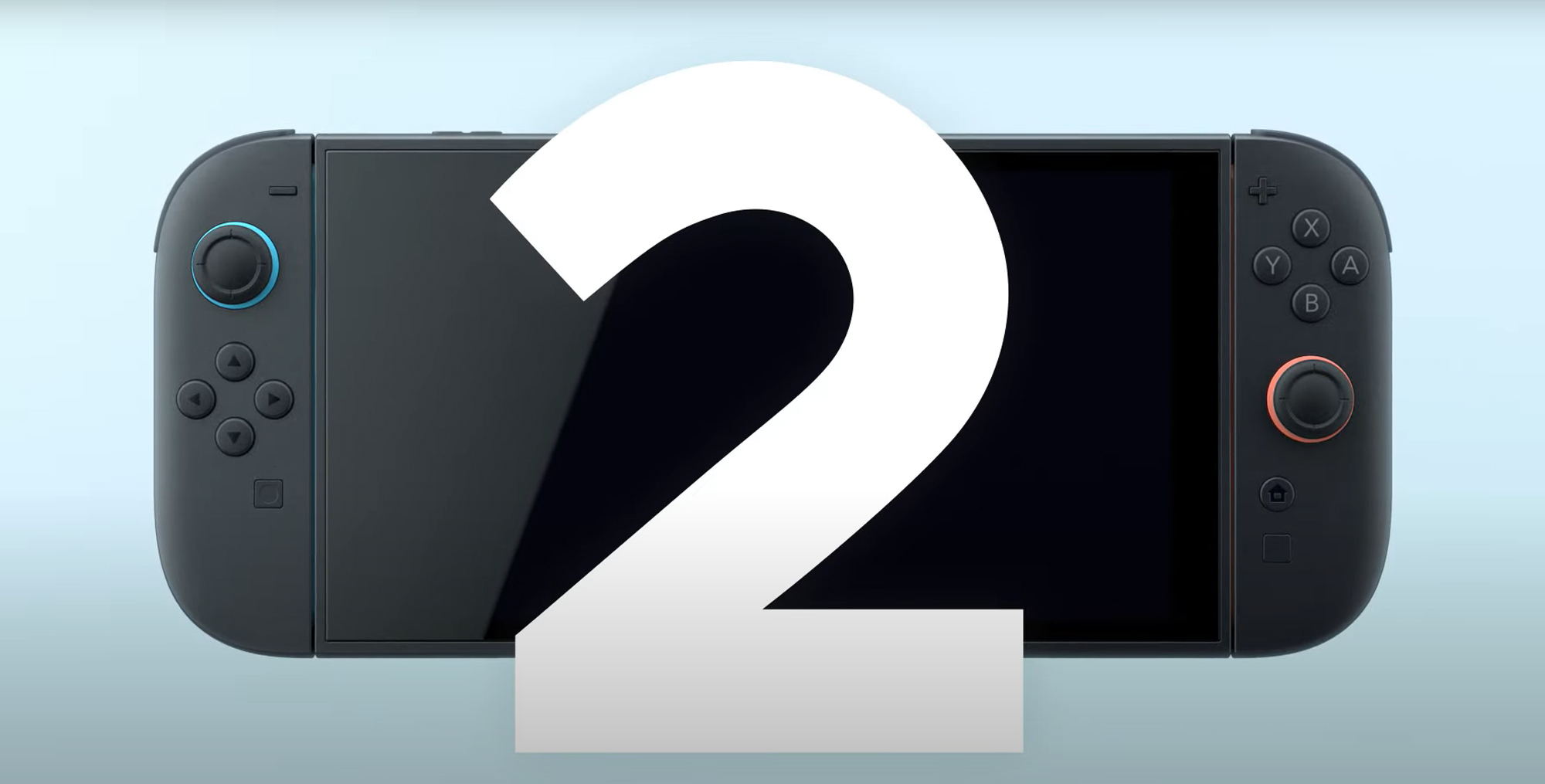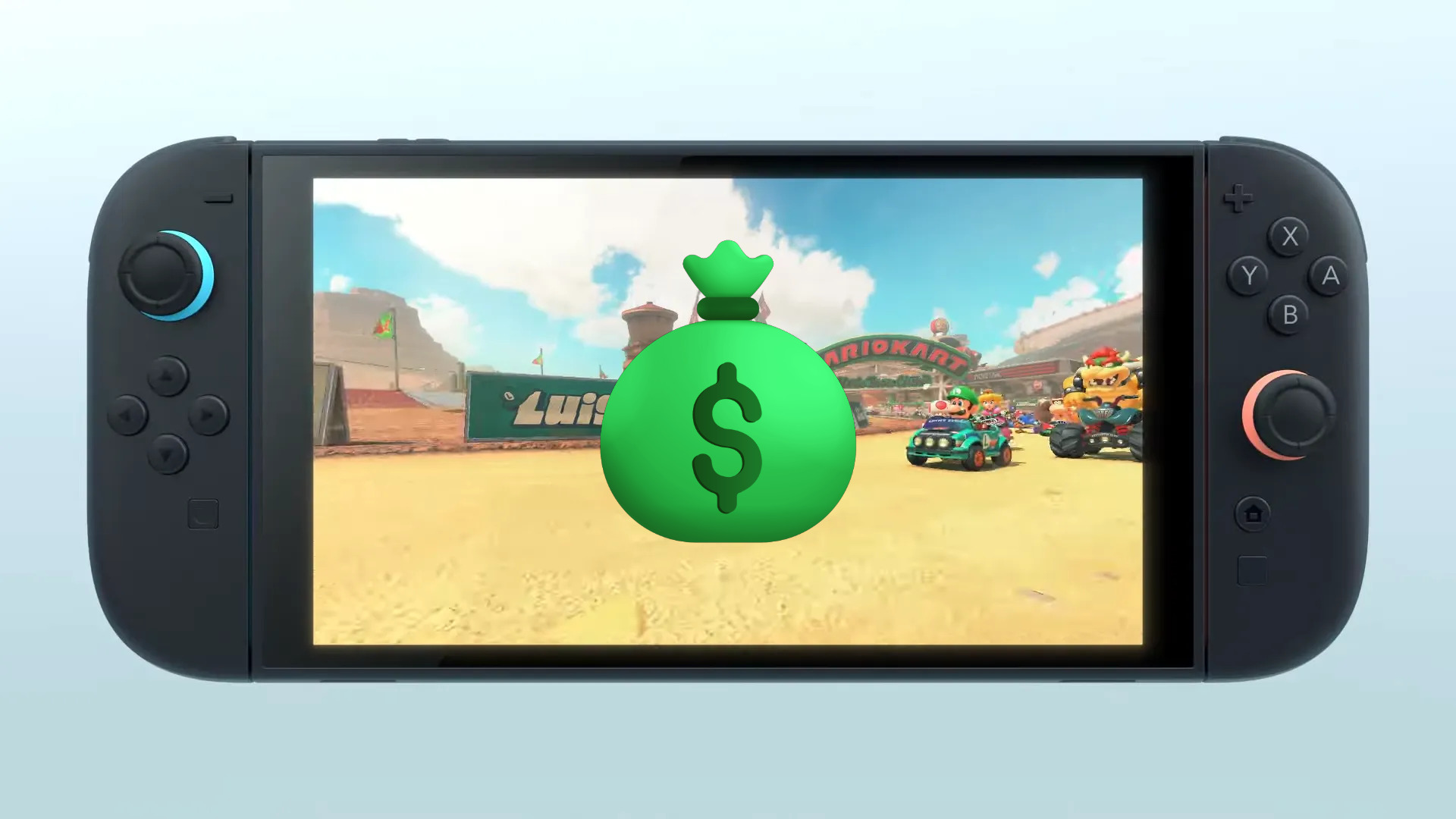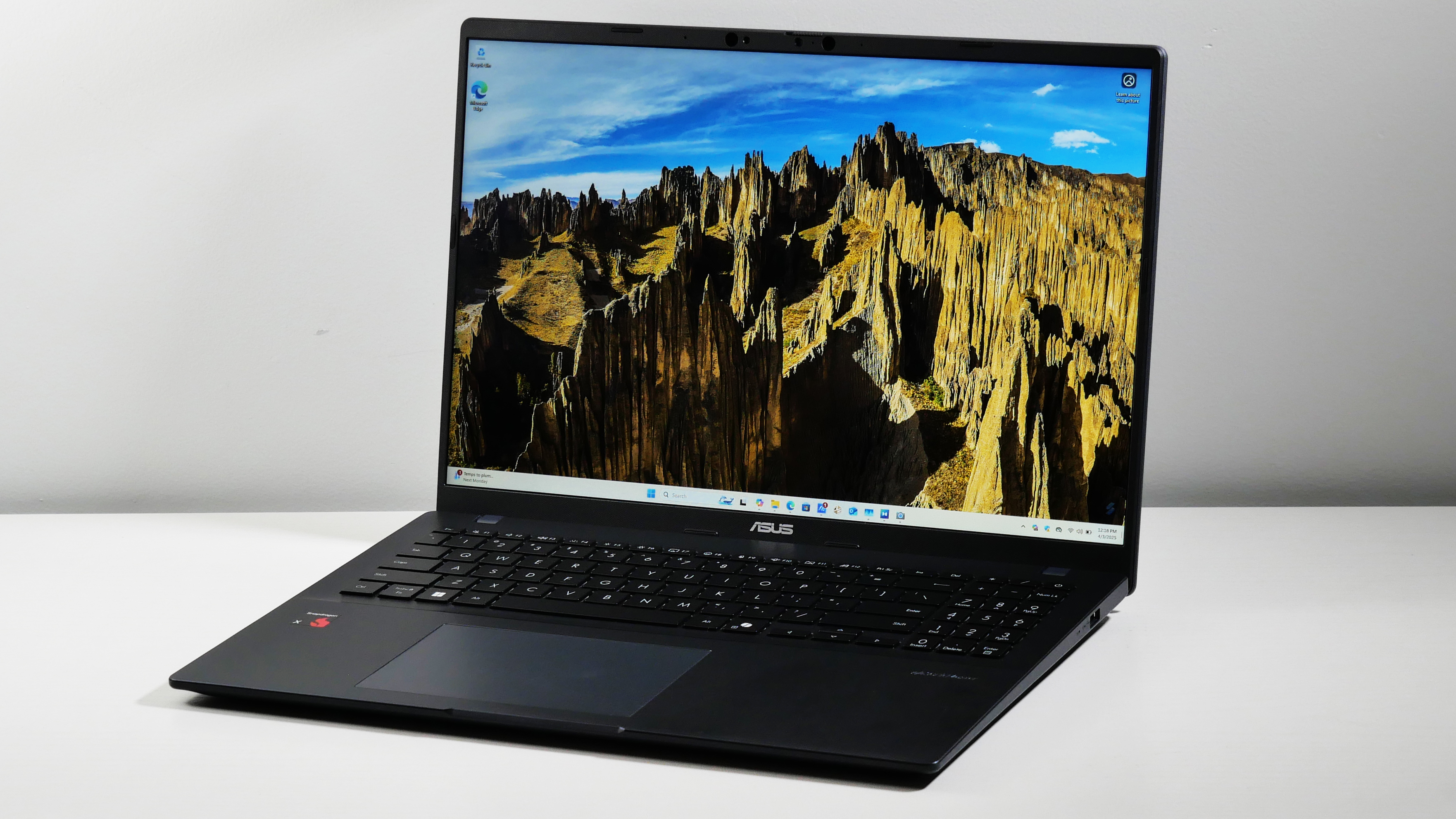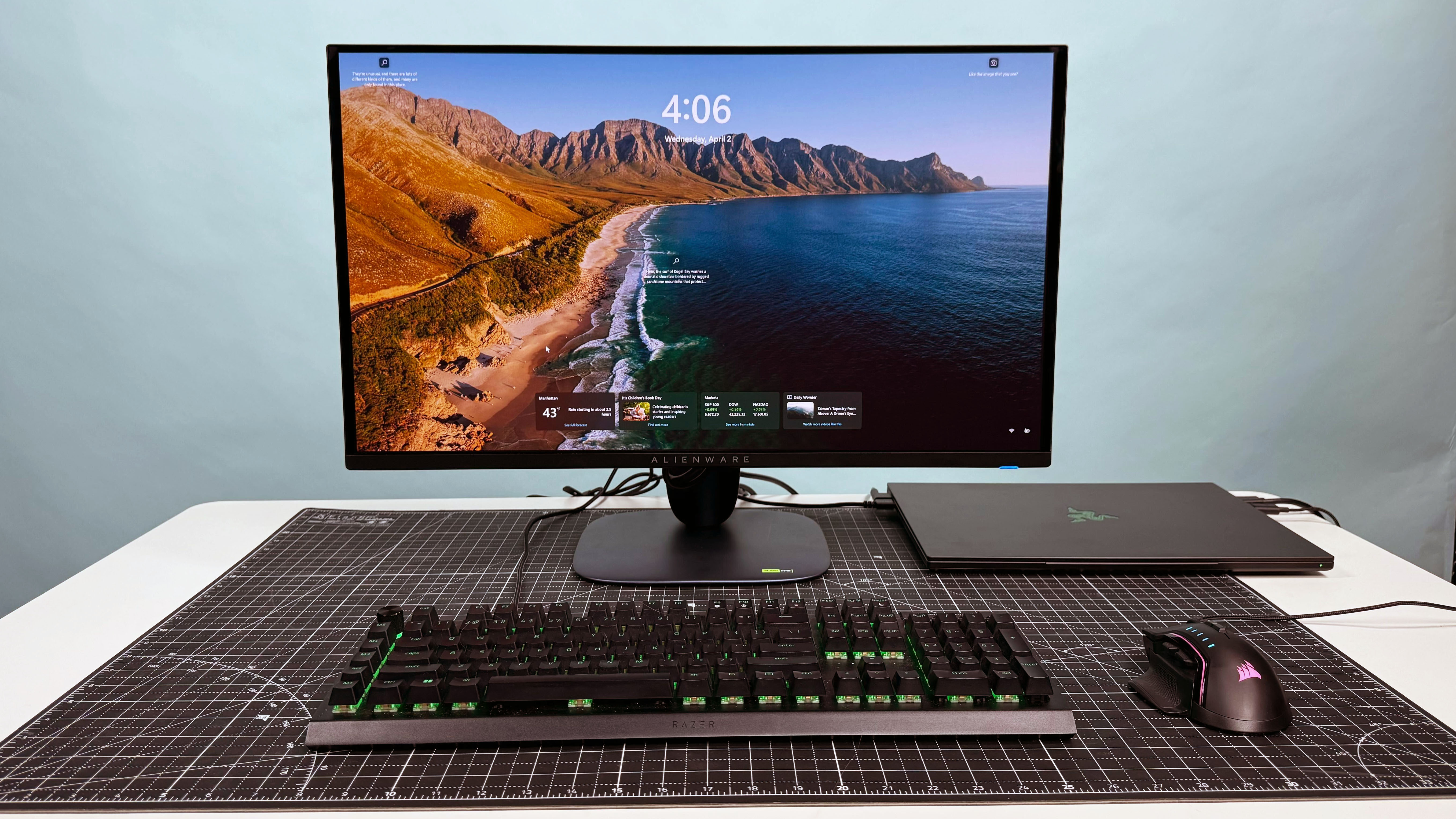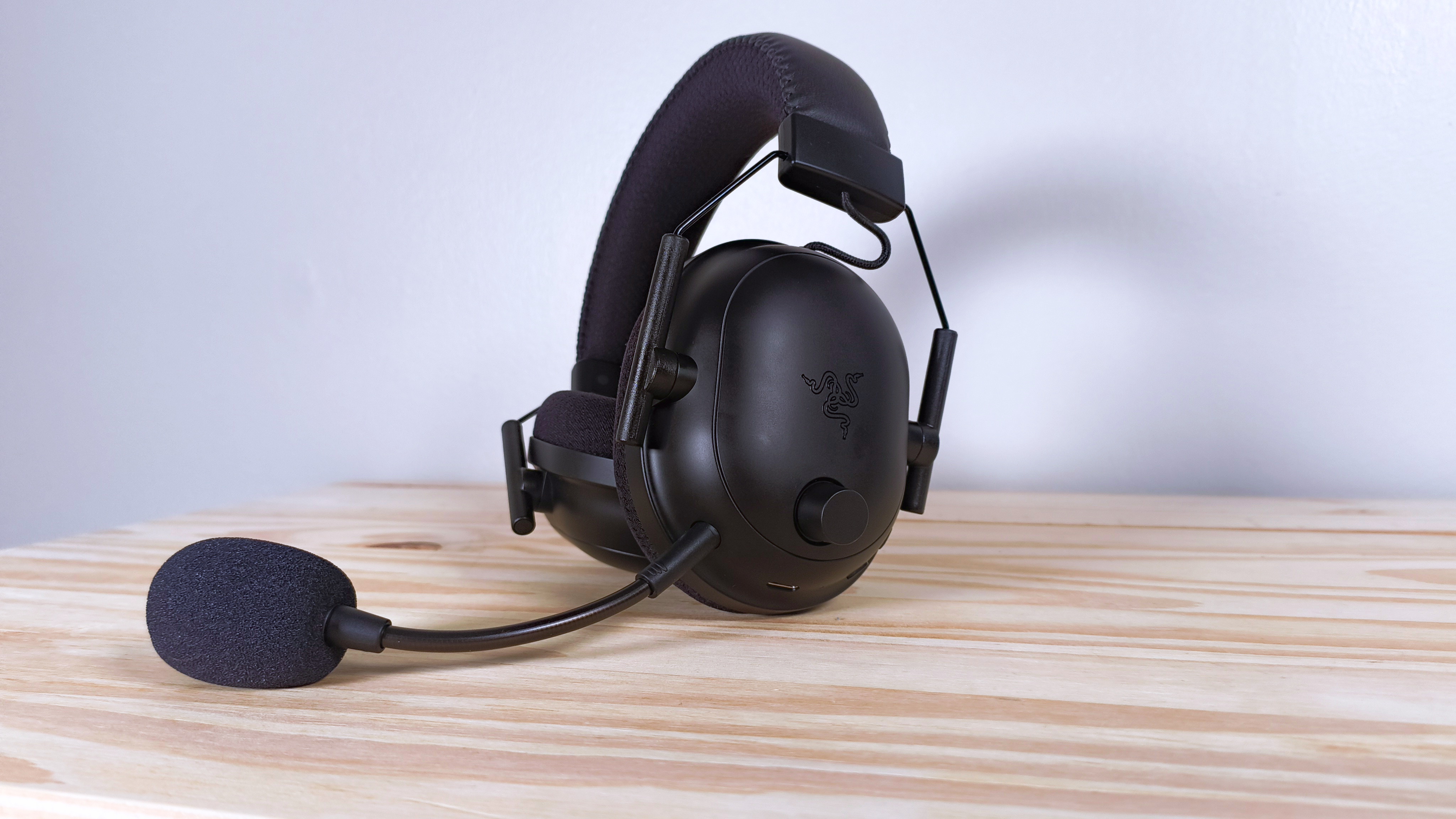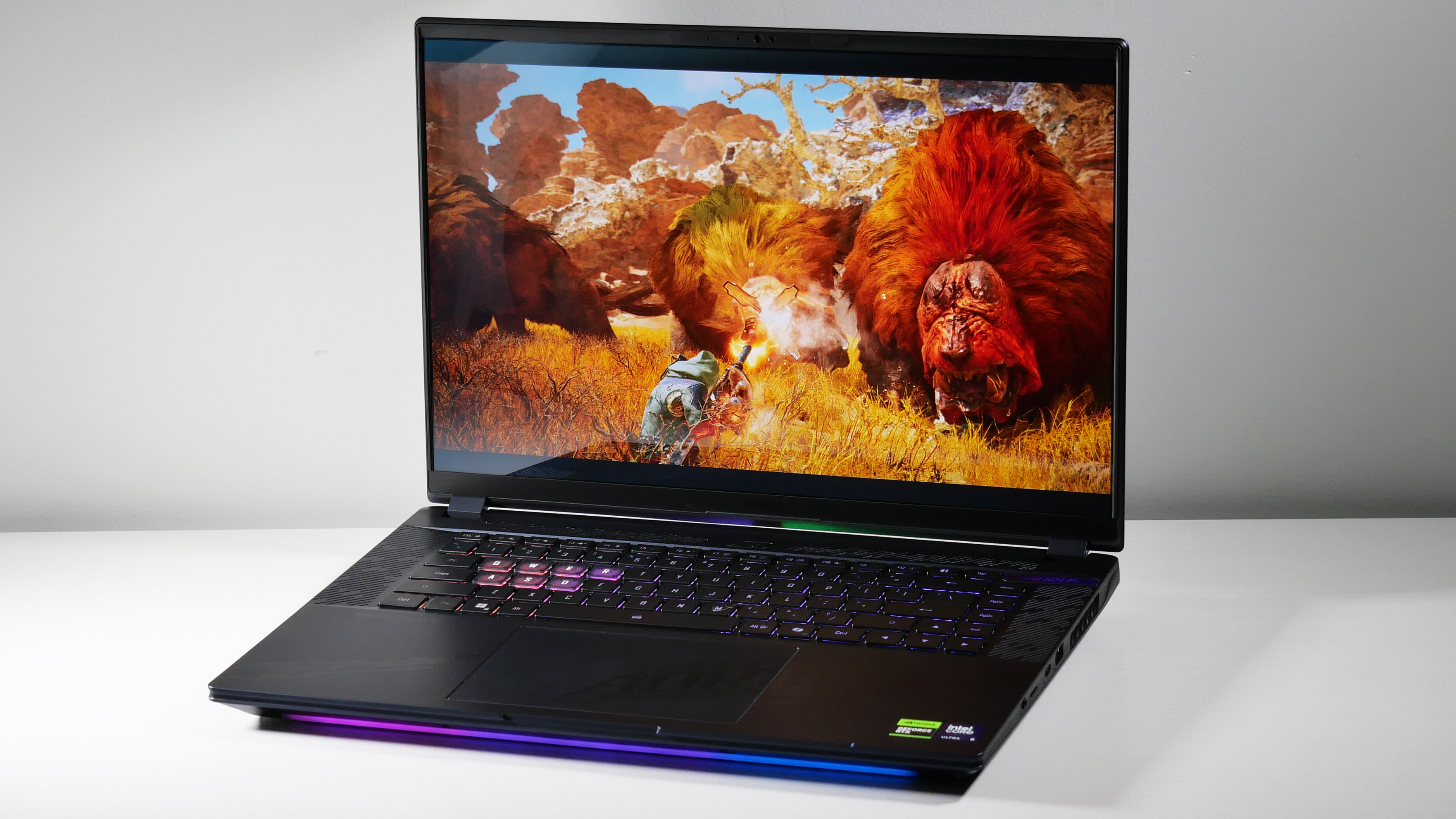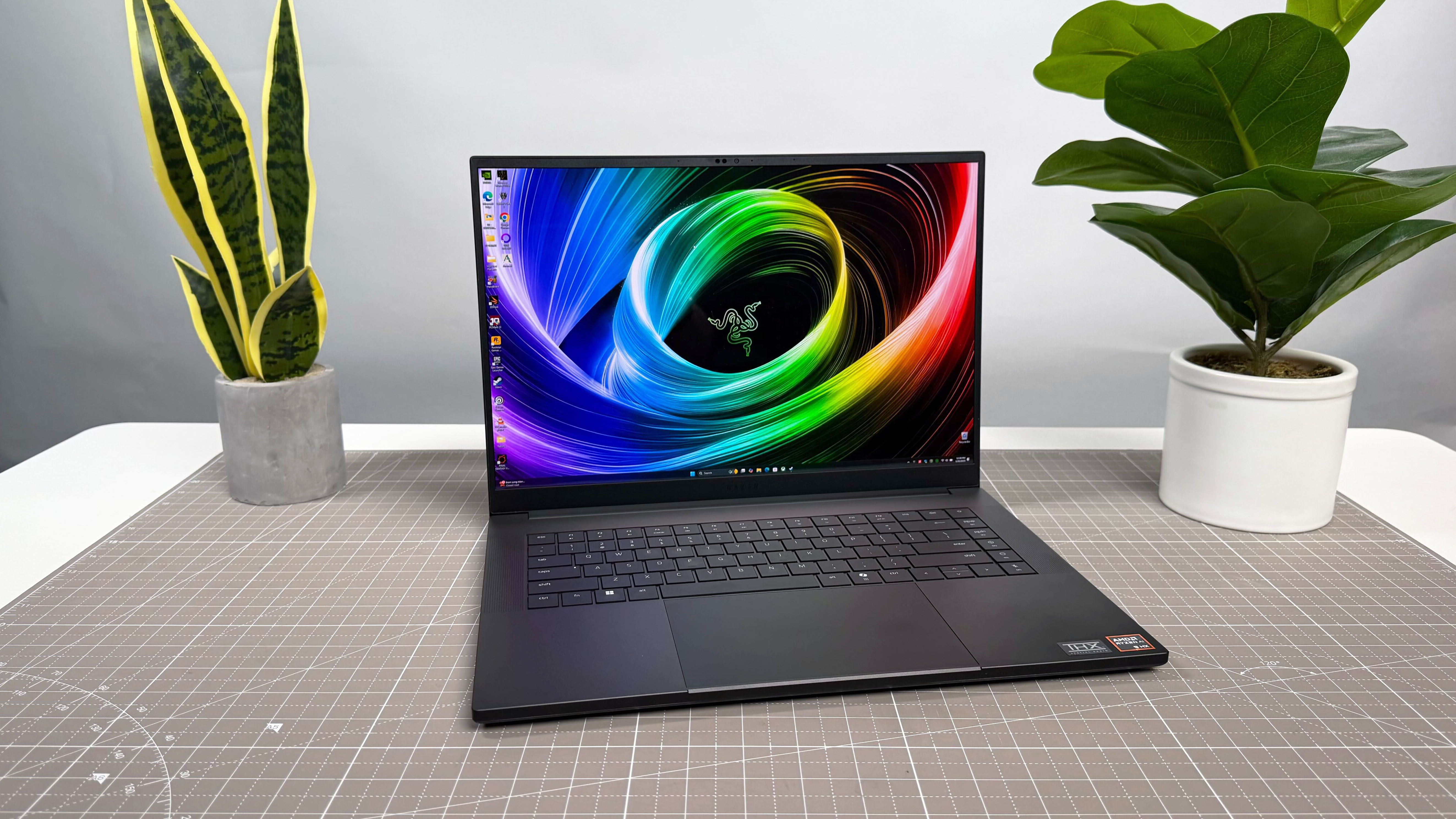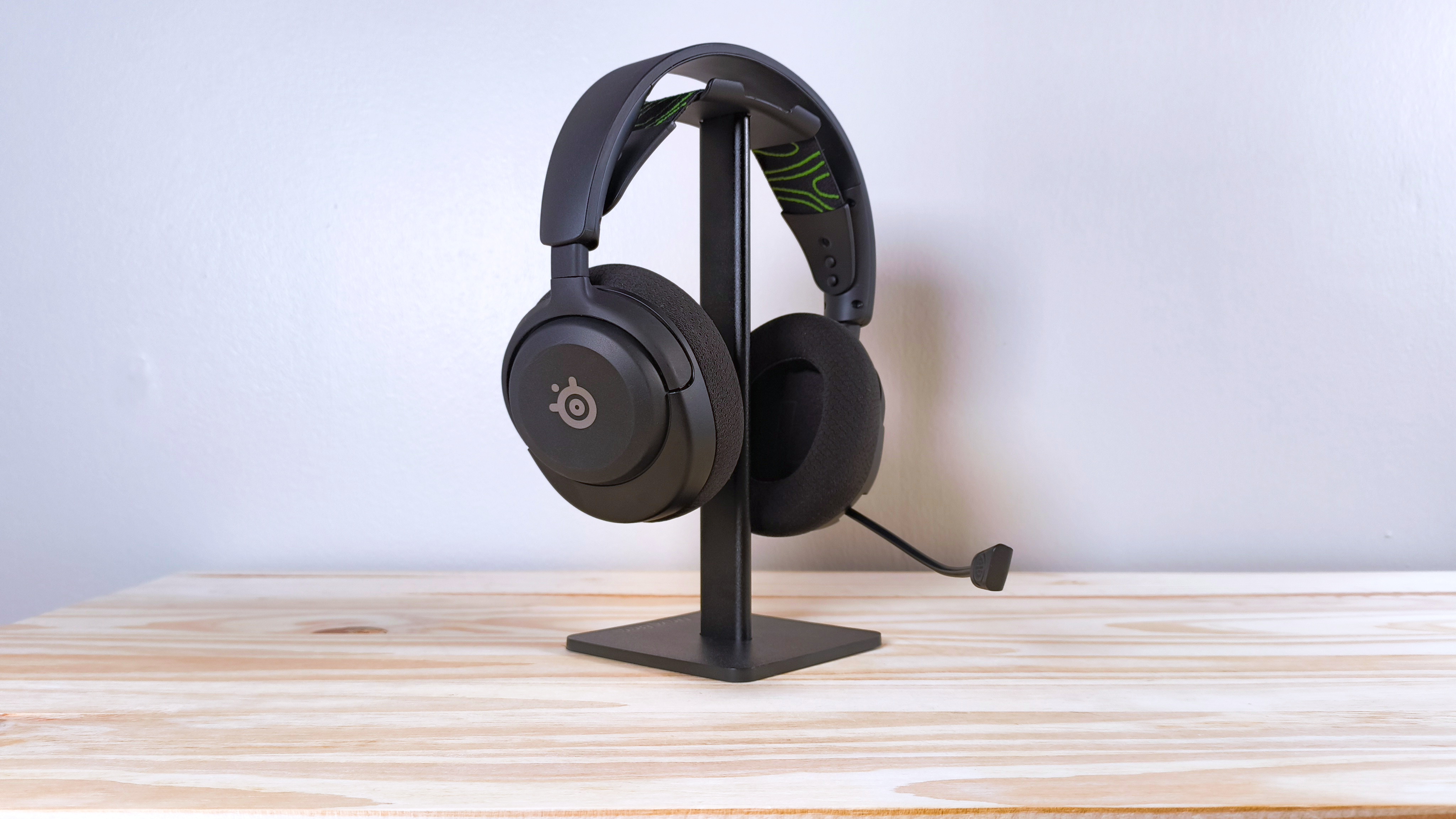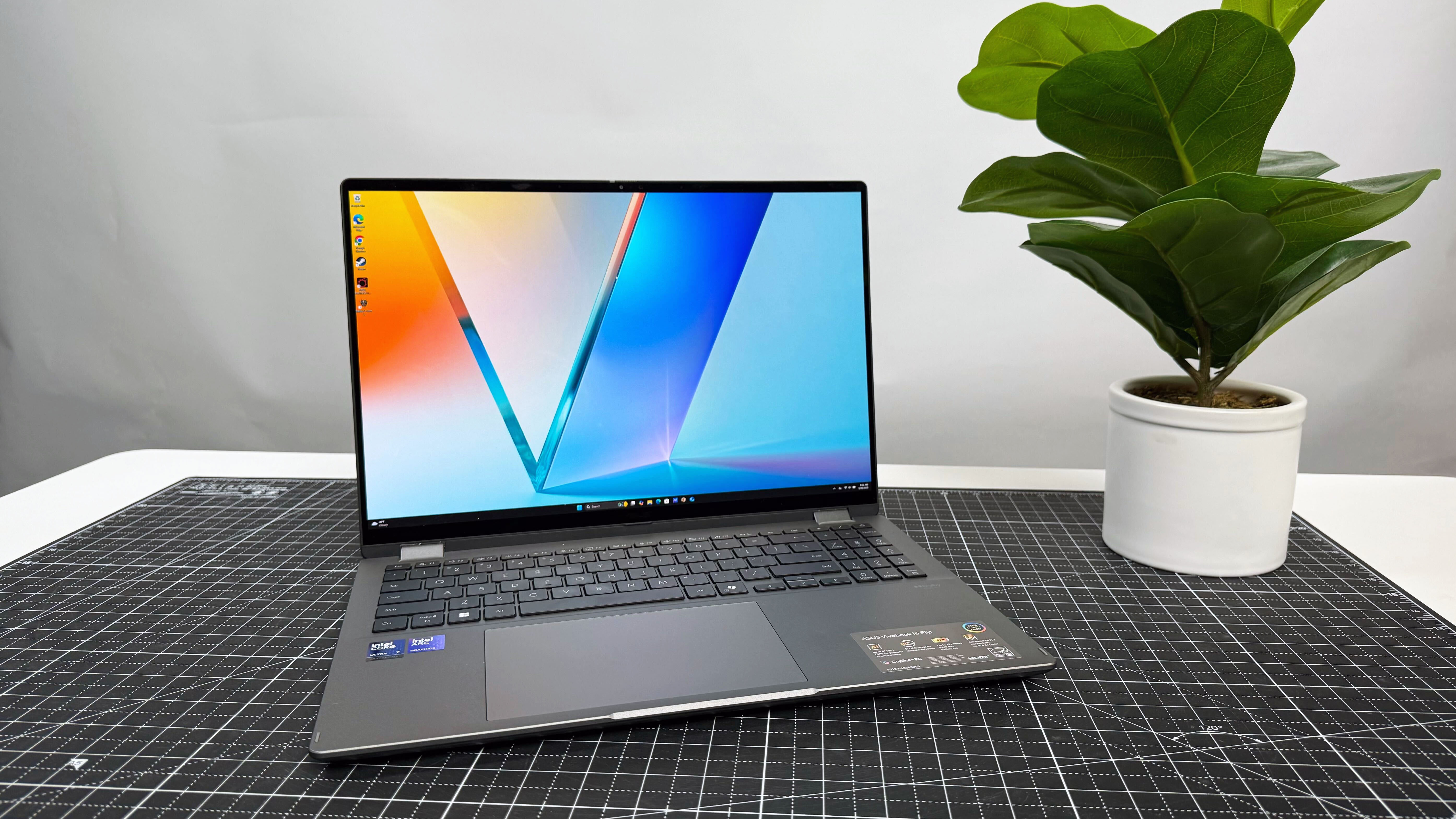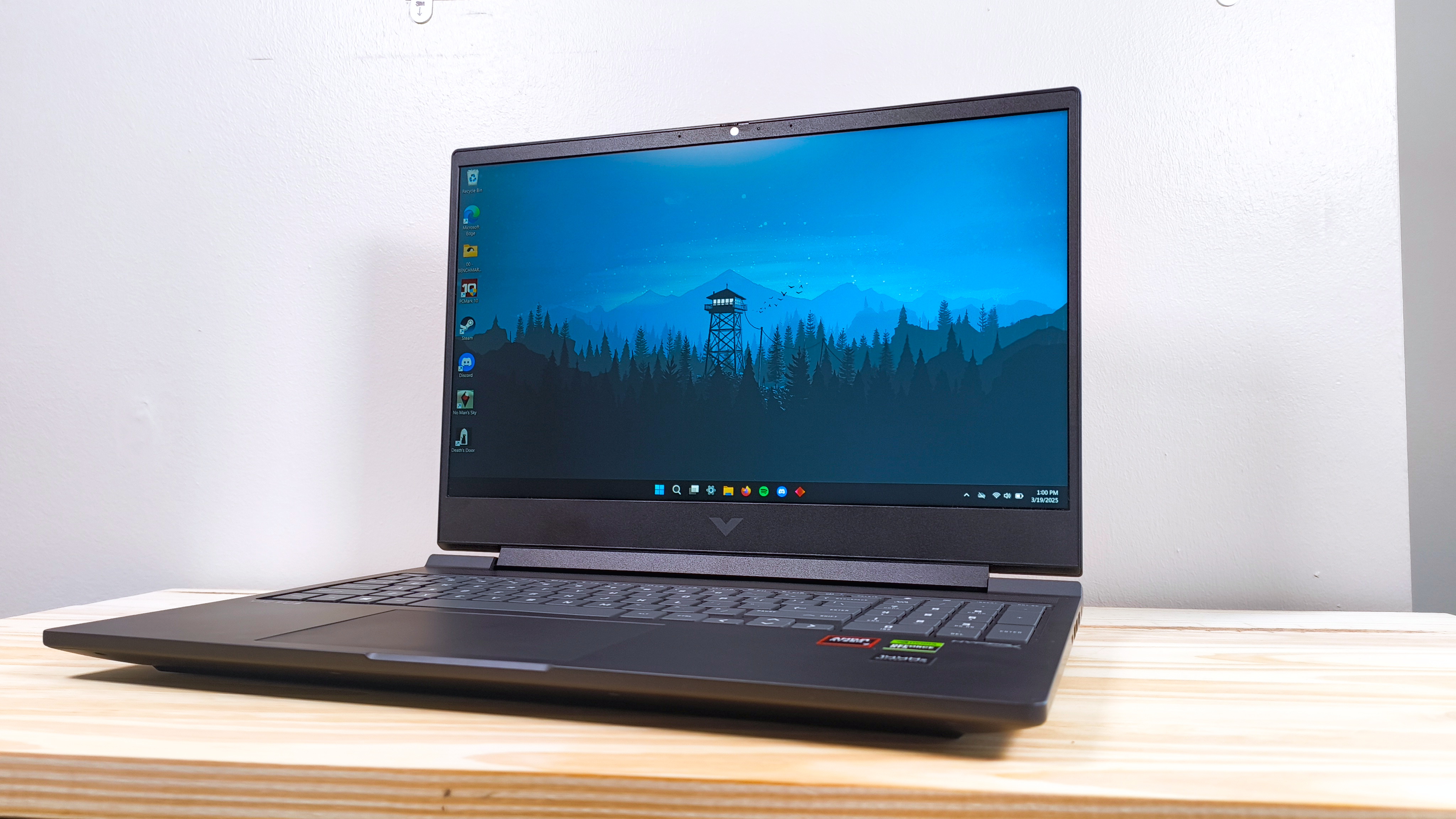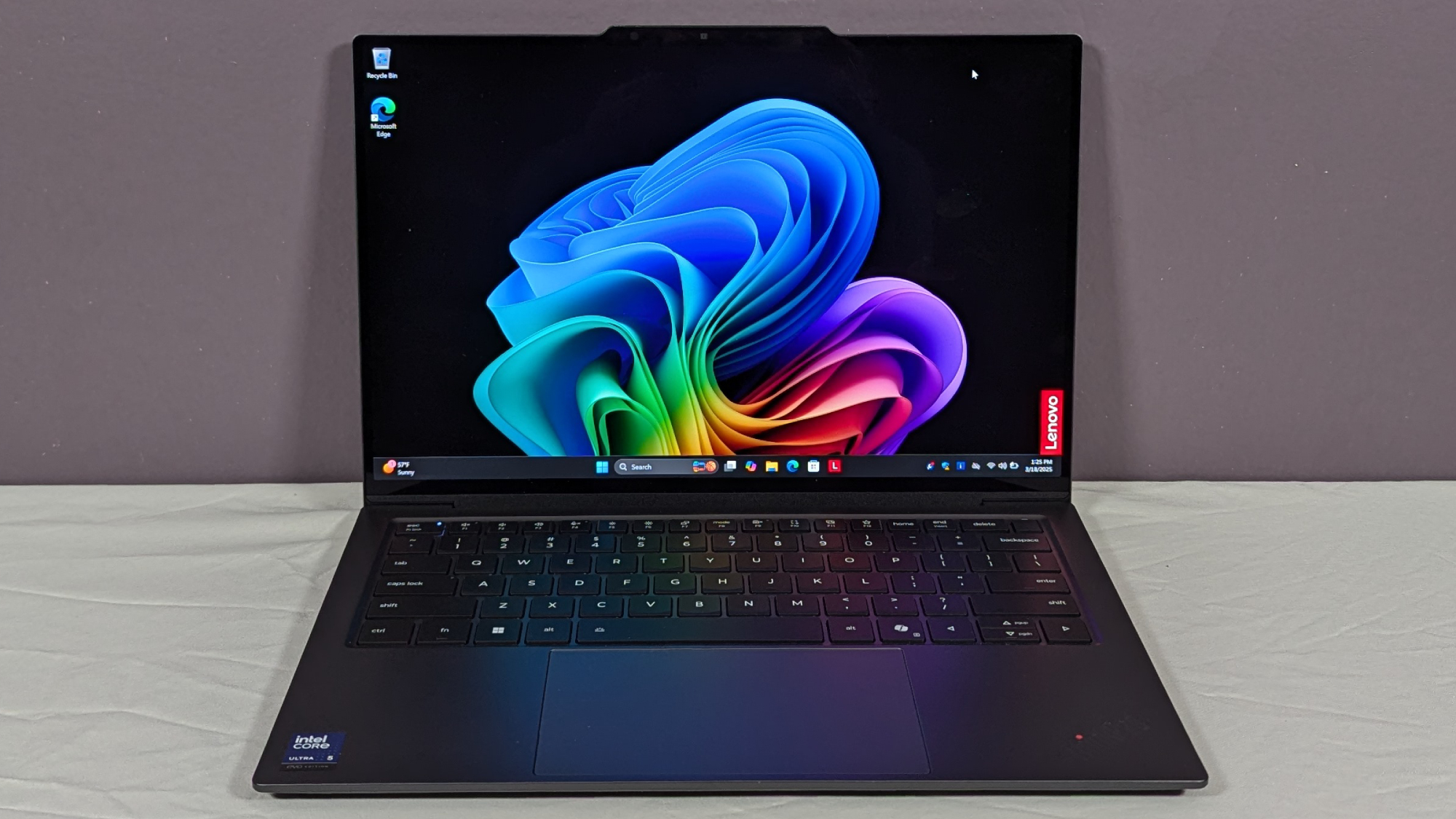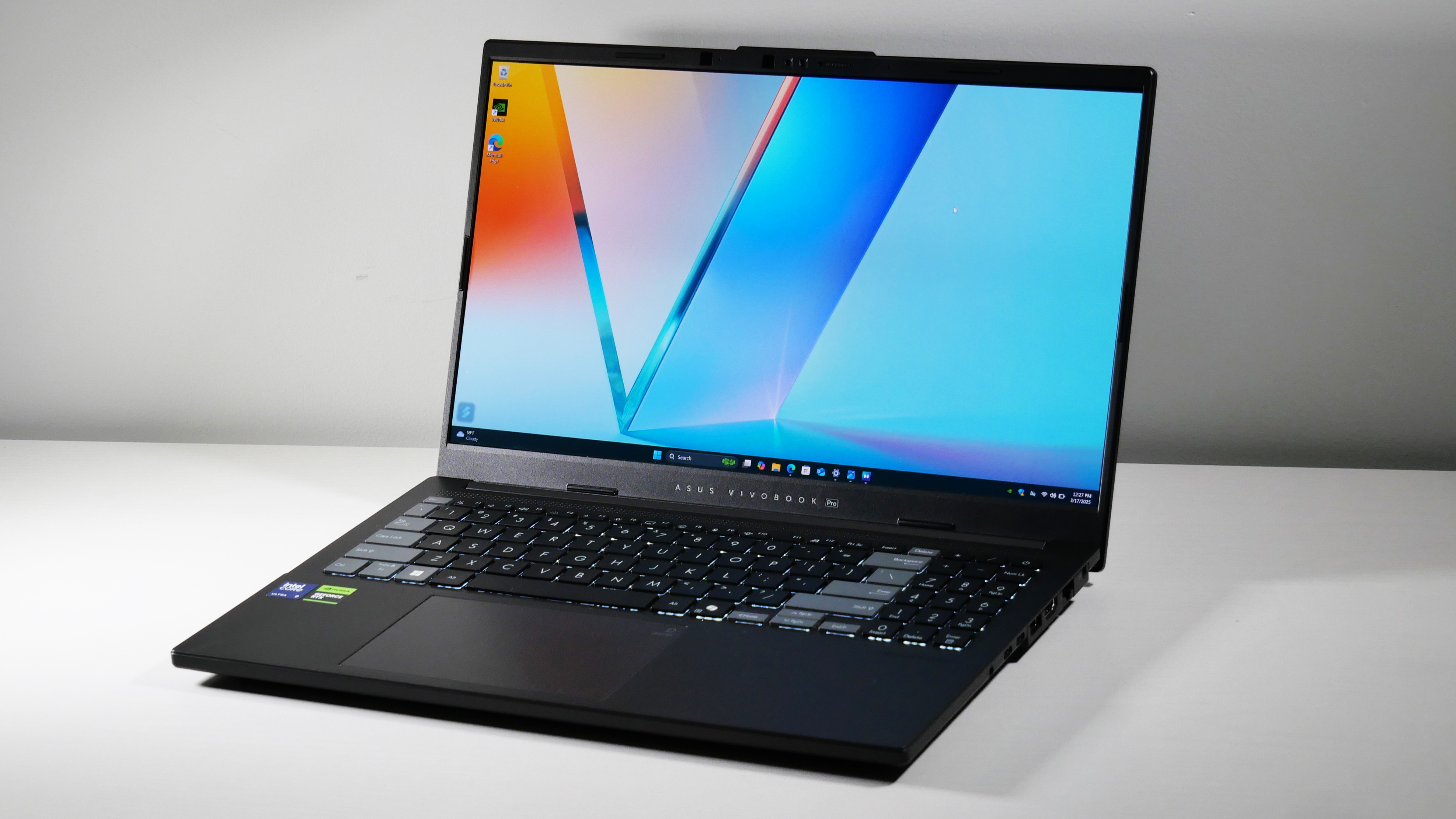Laptop Mag Verdict
Star Wars Jedi: Survivor is a wonderful evolution of the previous game, introducing a compelling narrative and even more engaging mechanics, but it gets a bit stifled by cliches.
Pros
- +
Compelling finale
- +
Engaging new mechanics
- +
All the cosmetics
Cons
- -
Silly and cliche moments
Why you can trust Laptop Mag
I waited for that moment in Fallen Order that would leave my jaw dropped, but it never happened, so I was skeptical when Star Wars Jedi: Survivor came across my desk. They lured me in with curiosity, and just when I thought I was close to some conclusion, the rug got pulled out from under me and I ended up in a trash compactor. Man, this game gave me whiplash.
Star Wars Jedi: Survivor does some silly things with its story, but it pulls through with a meaningful finale. The bonds formed by the Stinger Mantis crew are deeper than they were before, and the themes feel more mature. Despite the Survivor moniker, this game isn’t about surviving; it’s about the survivors themselves and how that affects their entire lives. Underneath the jokes and cliches is a deeply emotional narrative about suffering loss and how far one is willing to go to prevent it.
Star Wars Jedi: Survivor forces its way onto our best PC games, best PS5 games, and best Xbox Series X games pages with ease.
Blast, Slash and Flip
Star Wars Jedi: Survivor is a natural evolution of Fallen Order. I was completely in my element when the game started, and the game progressed at a solid enough pace to transition me into a different kind of Jedi. Granted, I was playing it more like a soulsborne than a Star Wars game, which got me killed a few times. But once tuned in with my force abilities, I didn’t have to rely on dodging or blocking as often.
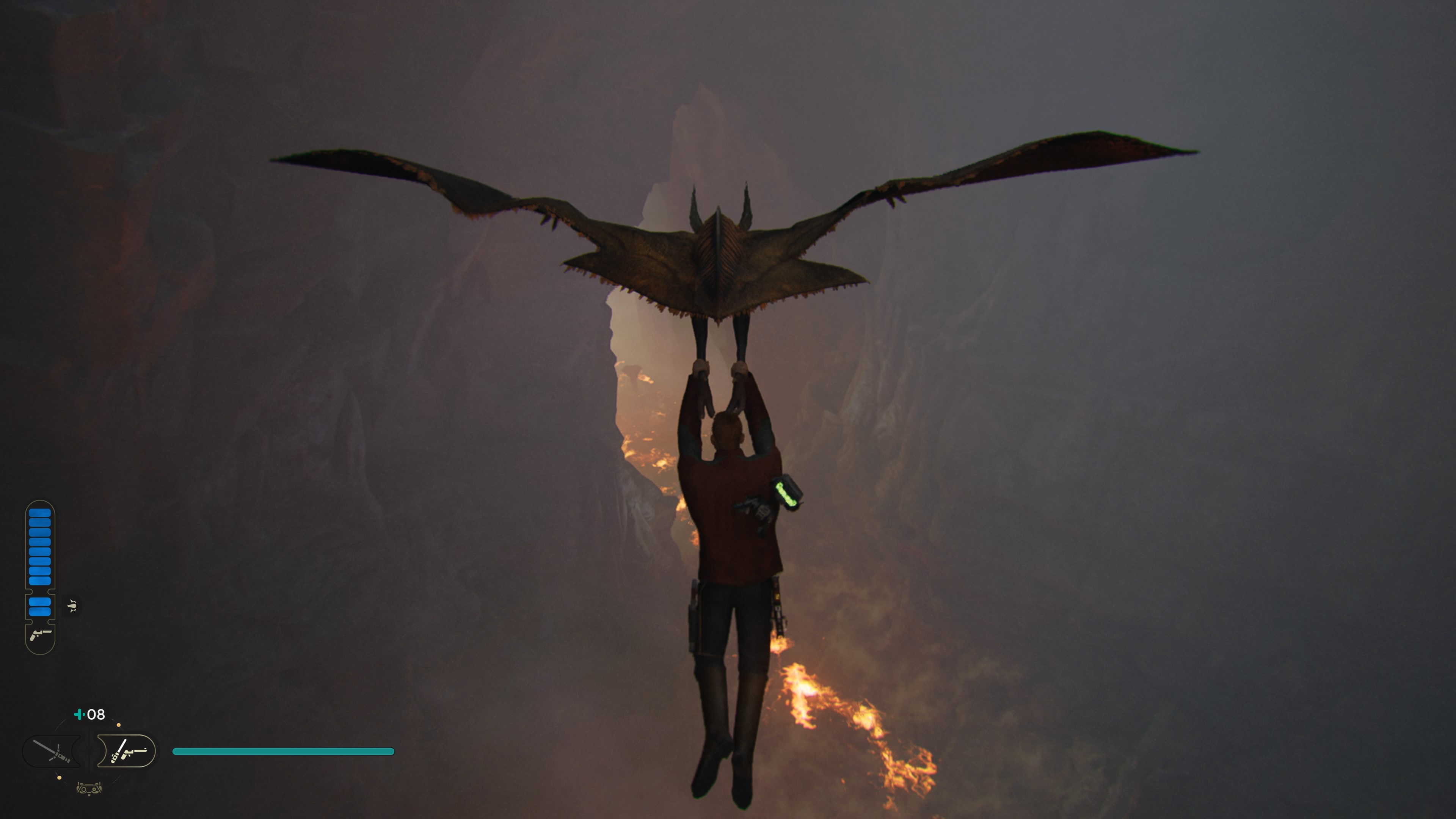
There are a number of new mechanics, but what really makes Star Wars Jedi: Survivor are the stances. There are five in total, including the original two: single blade and double-blade. You’re first introduced to the dual-wield stance followed by the blaster stance, and finally, you’ll get acquainted with the crossguard stance (go to the moon first if you want to get this early). You can equip only two at a time, which feels like a missed opportunity for shenanigans, but my go-to were the blaster and crossguard stance.
Each stance has its own stats detailing its capabilities. Crossguard is slow, but deals heavy damage and is capable of guard-breaking while the blaster stance gives you the benefit of speed and range. They were an easy match for my style, and the rest of the stances didn’t get touched after that. The only other stance I could argue for is the double-blade — it’s just too good at dealing with large groups. I like being able to play my own way, but it would've been nice to have access to all of them at any given time.
Another big improvement is the platforming. There are so many new movement abilities now that I find myself discovering creative solutions to combat and puzzle encounters. However, despite how open the world may seem, it’s rather strict with how it wants you to navigate. I can’t count how many times I was blocked by an invisible wall or outright killed from a fall that shouldn’t have caused more than a bruised ankle. I have a huge respect for developers that let players cheese their way through obstacles, but unfortunately, you can’t do that here.
The worlds are much bigger than they were in the first game, and so there are a lot of collectables around, but I felt a bit overwhelmed. Usually, I love running around and collecting all of the loot, but I found it difficult in this game. There aren’t any useful mechanics in the way of finding loot apart from scouring your map and looking for unexplored paths. Needless to say, I missed a lot of content. It just felt too exhausting to explore.
There is only the force
I had my doubts about the narrative in Star Wars Jedi: Survivor, especially since I found Fallen Order a bit anticlimactic, but the story ended up hitting me like a bus.

The third act is by far my favorite; it took me places that I didn’t even know I wanted to go to until I got there. Do I think it could have been darker? Yes, but I think everything can be a little darker. Between the acting and the dialogue, I was more invested in Cal Kestis and his squad than I have ever been.
(LIGHT SPOILERS AHEAD)
There were a few moments that bogged down the narrative for me. The introduction to the villain, Dagan Gera, was super weird. In the encounter with Cal Kestis, he fully disassembles his lightsaber and changes his Kyber crystal to red. This is so silly. Dagan Gera has no reason to do this other than to establish to us, the audience, that he’s the villain. Dagan Gera’s motives have nothing to do with the Empire or the Sith, therefore there’s absolutely no reason why he should have a red lightsaber. Even if he forsakes the Jedi Order, he’s not a Sith.
His goals aren’t even really villainous. Kestis is just antagonistic toward Dagan’s goal. Kestis also acted strange in that encounter; there are a dozen of things he could and should have said to avoid a fight but didn’t. The entire plot hinges on this moment and it’s such a weak pillar that you could blow it over by looking at it too long.
There’s a moment similar to this later in the story. I won’t go into too many details, but the point is, we don’t need to paint our villains red and black for us to know that they’re villains. A great example of this is the final fight in Star Wars: Episode III – Revenge of the Sith. Anakin fights Obi-Wan with a blue lightsaber. It would have been so weird if he randomly just changed it to red. He was too busy killing younglings for that.
The story can be silly and cliche sometimes, almost as if it’s appealing to someone other than the audience, but overall, I think the core narrative beats are great and I am excited to see where the team takes us next.
Man bun wins
Ponchos, ponchos, ponchos — sike! The team heard us, and Star Wars Jedi: Survivor features all kinds of wonderful customization options. You can customize almost everything, including the lightsaber, blaster, BD-1, clothes, face, hair, and more.
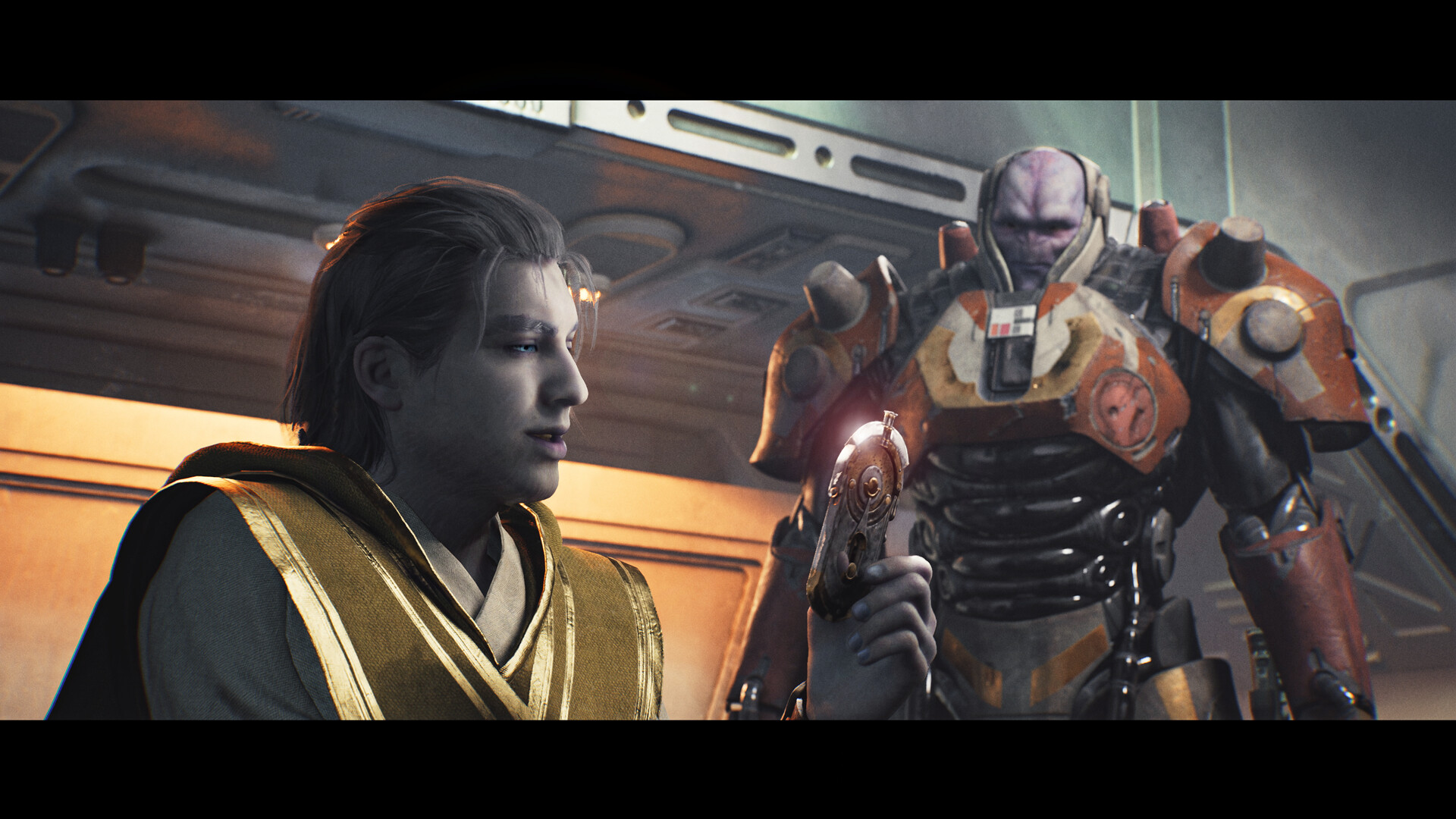
I had Kestis rolling up to Stormtroopers with a man bun and a full grown beard. There are tons of outfits, parts and paints you can unlock throughout the game. I love how the paints are delivered in sets. There are collections, such as Unique Metals, which include iconic imagery like Beskar steel. My blaster is currently made of Beskar steel and accented with imperial red colors. It looks wicked.
It’s tough to complain about the customizations, especially since it’s so in-depth, from the pommel of the lightsaber to the antenna on BD-1’s head. But if I had to complain about one thing, it would be the lightsaber colors. It’s nice that we get access to nearly all of them at the beginning of the game (you have to beat the game to unlock two of them), but I feel like there should be more. Let us customize our lightsaber with a color slider. That would be so cool. I want to see darker primary colors or even a black color.
Performance — This is the dark side
I am about to complain a lot, but keep in mind that I played a review copy of Star Wars Jedi: Survivor before the day-one patch was implemented. I’m not counting this toward the score, but it should be said. And if the patch doesn’t fix what I’m about to complain about, then we can all cry together.
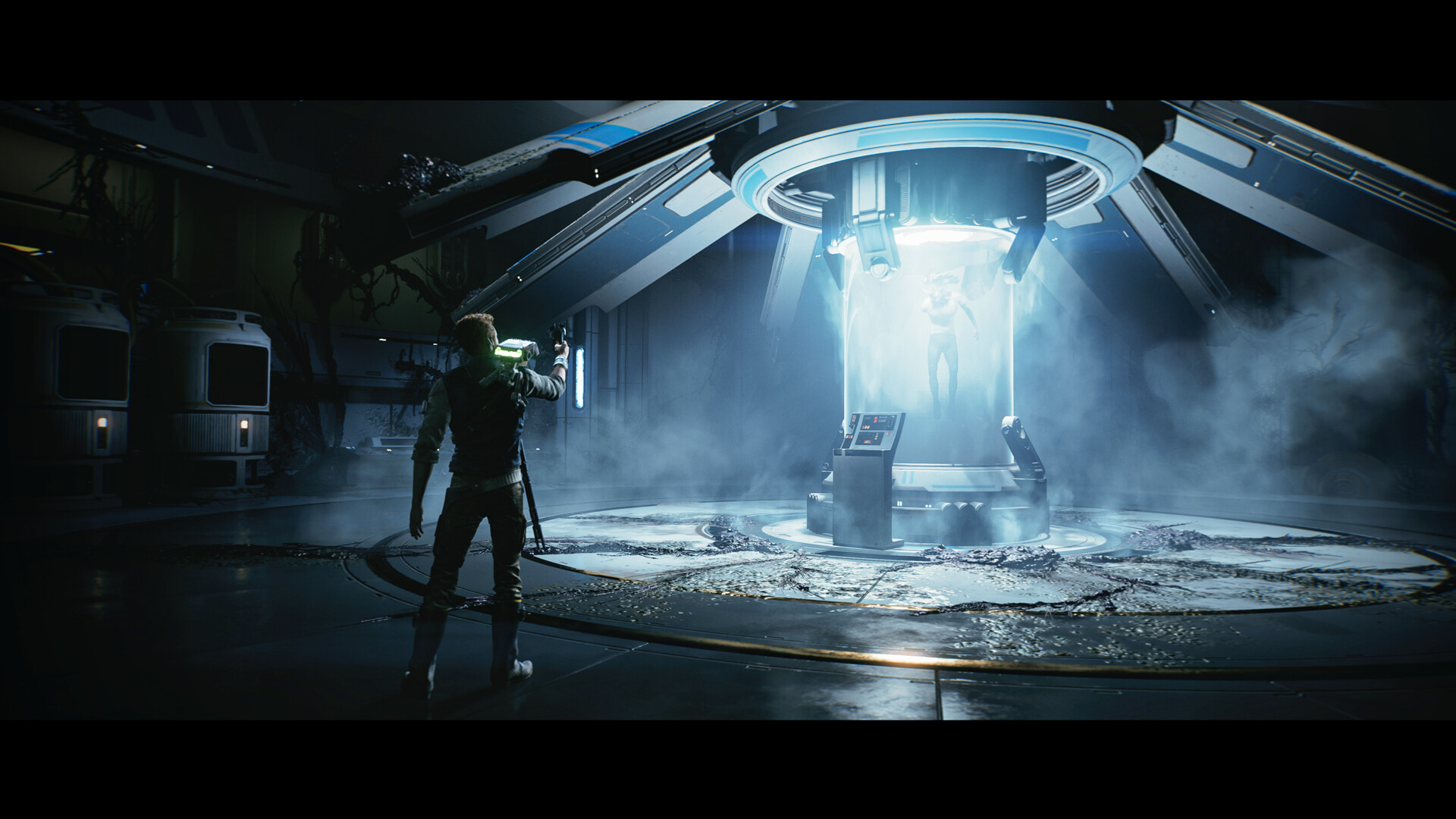
I played on performance mode, and oh boy, when I was supposed to be getting 60 frames per second, I dropped to 15 to 30 fps during open-world treks on Koboh. There was constant screen-tearing, and it was so bad that it gave me a headache.
NPCs would get stuck in certain spots, and I would have to restart. Certain cutscenes crashed my game. BD-1 couldn’t slice enemies occasionally, which also occasionally got me killed.
There were a whole host of issues that I hope none of you experience. The terrible performance was a huge thing. Even transitioning from cutscenes to gameplay lagged a bit and I either missed parts of a scene or it just looked really janky.
One thing I will complain about across the board: why the heck is this game 150GB? Please stop!
Star Wars Jedi: Survivor PC requirements
If you’re looking to hop in Star Wars Jedi: Survivor on PC, keep in mind these requirements.
For a minimum, aim for an AMD Ryzen 5 1400 or Intel Core i7-7700 CPU, an AMD Radeon RX 580 or Nvidia GTX 1070 GPU, and 8GB of RAM. At recommended specs, go with AMD Ryzen 5 5600X or Intel Core i5-11600K CPU, an AMD RX 6700 XT or Nvidia RTX 2070 GPU, and 16GB of RAM.
Check out our best gaming laptops and best cheap gaming laptops for good options.
Bottom line
I thoroughly enjoyed my time with Star Wars Jedi: Survivor. I didn’t get to everything I wanted to before I completed the story because this game is a hell of a lot bigger than the original, but what I did experience was great.
The narrative came together really well, outside of the few moments I mentioned. The central themes in this story about love and loss and how it shapes you is what Star Wars is all about, and those subject matters transcend the science-fiction narrative.
There’s a wonderful trend on TikTok that talks about how a hero would sacrifice you to save the world and a villain would sacrifice the world to save you. There’s a complex moral dilemma there — something we’ve seen in plenty of media, especially The Last of Us. The point is that the light and dark sides aren’t indicative of what’s really right and wrong, and Star Wars Jedi: Survivor explores that in an interesting way.

Rami Tabari is the Reviews Editor for Laptop Mag. He reviews every shape and form of a laptop as well as all sorts of cool tech. You can find him sitting at his desk surrounded by a hoarder's dream of laptops, and when he navigates his way out to civilization, you can catch him watching really bad anime or playing some kind of painfully difficult game. He’s the best at every game and he just doesn’t lose. That’s why you’ll occasionally catch his byline attached to the latest Souls-like challenge.
